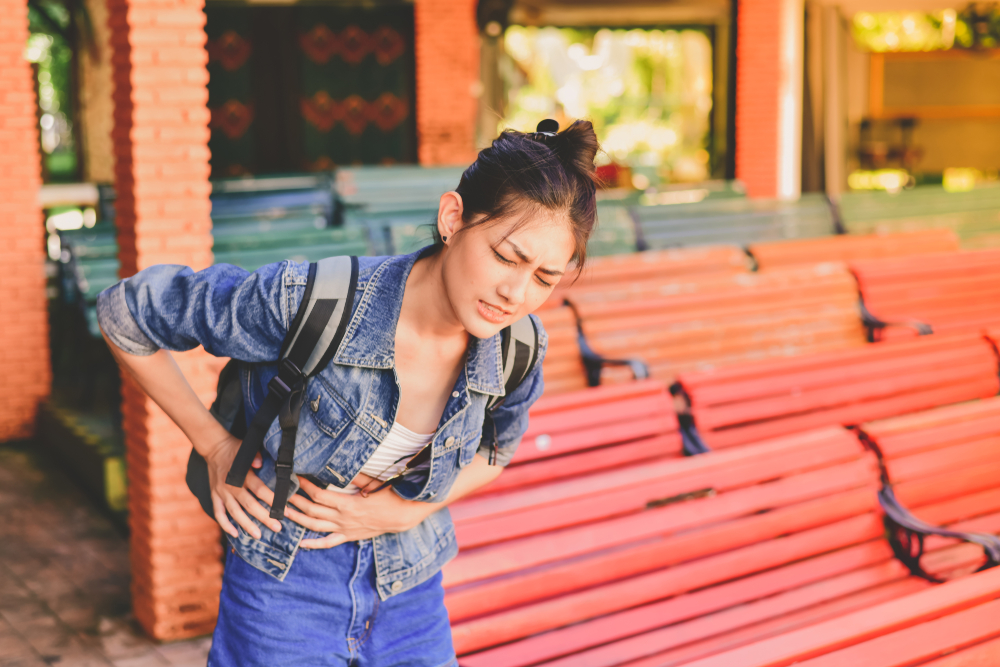How to avoid food poisoning on holidays

Nobody wants to be laid up with food poisoning on holidays.
But it happens to hundreds of holiday makers each year. A mild case can have you stuck in your apartment for a couple of days but a more serious attack can require medical assistance.
By applying some common sense, you can minimise the risk of falling ill and feel safer in exploring the food delights of the cultures you visit. When looking for places to eat, it’s a good idea to ask locals, tourist information and other travellers. Of course, finding hidden eateries off the beaten track can be good fun. Wherever you decide to eat, take note of these tips to avoid the risk of food poisoning.
Hygiene and management
- Does the restaurant look well managed?
- Are tables and surfaces clean?
- Are the utensils, cutlery, crockery and glasses clean?
- Are the waiting staff well presented, with clean hands, long hair tied back, and clean clothes?
- Are the sinks and toilets clean and well maintained?
- Are hand towels freshly laundered?
- Are other people dining in the restaurant?
Displayed food
- Are raw and ready-to-eat foods kept separate?
- Are separate serving utensils used for raw and ready-to-eat food?
- If you can see food being prepared, is it being done in a hygienic manner?
- Is all displayed food covered, and protected from flies?
- Does the food look 100% fresh, and not as if it has been lying around for a while?
- Are new batches of food presented in clean containers and not just topping up the previous container?
Your meal
- Is hot food served hot and cold food served cold? If the temperature isn’t right, send it back.
- Is meat cooked properly? There should be no pink meat, it should be piping hot all the way through and the juices should run clear? If part of your meal is undercooked, send it back. And ask for a fresh serving of everything as juices of the undercooked food may have contaminated the rest of the food.
- In countries where the local water isn’t safe to drink, don’t eat raw vegetables and salads washed in local water.
- If you find a ‘foreign body’, such as a hair in your food, send it back.
- Is the food fresh and prepared to order? If it looks as if it’s been hanging around, don’t eat it.
- If you suspect that due care wasn’t given to the preparation of your food, complain.
Self-catering when abroad
- If you’re in an apartment or on a budget, you might be doing your own cooking. Here are a few tips to keep you safe.
- When buying vegetables from markets, look for freshness.
- Make sure that the meat is chilled and covered. Try to buy from busy sources to avoid meat which isn’t fresh.
- Only buy products that you can store safely. Don’t buy dairy products if you’re in a hot country and you don’t have access to a fridge.
- If the local water isn’t safe to drink, wash vegetables and fruit in bottled water, or cooled, boiled water.
- Clean utensils well before you use them.
- Apply the basic rules of food preparation as you would at home.
How to cope with food poisoning abroad
- If the worst happens and you do fall ill with food poisoning, here are some pointers to get you on the road to recovery.
- If you are travelling in Europe, the Citizens Information Board (Ireland) and the Citizens Advice Bureau (Northern Ireland) will tell you which documents you need to get medical help.
- When you arrive, find out how to get medical help. It may be a local clinic or hospital, or your holiday rep may recommend a medical service.
- Always have travel insurance that covers you for medical treatment.
- It’s a good idea to bring Imodium which helps reduce diarrhoea and anti-nausea pills to take until you can arrive at a place where you can be treated.
- Mild food poisoning lasts for 24 hours. If you are not seeing signs of recovery after that, seek medical advice.
- Drink as much water as you can to avoid dehydration. Avoid drinking tap water - bottled water is safest.
- When you are recovering from a bad case of food poisoning, it’s a good idea to take a re-hydration supplement to replace lost salts and minerals.
- When your appetite returns, start by eating plain, non-fatty foods such as rice or dry bread. Gradually include other foods over the next two days.
Before you travel, become familiar with the symptoms of food poisoning. Avoiding food poisoning abroad is a matter of common sense and knowing what to look out for. Keep your eyes open and be sensible about what and where you eat.

